The hip-hop landscape has been shaped by numerous iconic figures, but some stand out for their lyrical prowess, cultural impact, and innovative style. The greatest rappers have not only dominated the charts but have also left an indelible mark on the music industry.
From the early days of hip-hop in New York to the current global phenomenon, these artists have paved the way for new generations. Their debut albums and solo careers have been pivotal in defining the genre.
Key Takeaways
- The article explores the greatest emcees who have shaped hip-hop culture.
- Rankings consider critical acclaim, cultural significance, and artistic innovation.
- The list celebrates diverse styles and eras of rap.
- Pioneers who laid the foundation and modern artists who’ve pushed the genre forward are acknowledged.
- The impact of these rappers on the music industry is examined.
- Their journeys from origins to rise to prominence are explored.
The Evolution of Rap Music
From its roots in underground block parties, rap music has grown into a global force, shaping cultures and influencing generations. The genre has come a long way since its inception, evolving through various phases that have contributed to its current status as a dominant force in global music.
From Block Parties to Global Phenomenon
Rap music originated in the 1970s at block parties in New York City, where DJs would isolate the instrumental breaks of funk and soul records, extending them to create a continuous flow of music that allowed people to dance longer. This innovative approach to music laid the foundation for rap’s early development. As the genre progressed, it began to incorporate more complex lyrics and socially conscious themes, reflecting the experiences and challenges faced by urban communities.
The 1980s saw the rise of hip-hop as a cultural movement, with groups like Run-DMC and the Beastie Boys achieving mainstream success. This period was crucial in bringing rap music to a wider audience, paving the way for its global popularity. The 1990s further cemented rap’s place in the music industry, with the emergence of sub-genres like gangsta rap and the rise of artists such as Tupac Shakur and The Notorious B.I.G.
The Golden Age of Hip-Hop
The 1990s are often referred to as the “Golden Age” of hip-hop, a period marked by significant creativity and innovation within the genre. This era saw the emergence of legendary artists and albums that would shape the future of rap music. Kendrick Lamar’s breakout album, good kid, m.A.A.d city (2012), is often cited as a modern example of this storytelling tradition, introducing the world to Kendrick’s linguistic prowess and conceptual storytelling.
Artists like Kanye West revolutionized the sound of hip-hop with innovative sampling techniques and genre-blending productions that topped the Billboard200 charts. The rise of Southern rap and trap music expanded the sonic palette of hip-hop beyond its East and West Coast origins, contributing to the genre’s diversification.
- The 2000s and beyond have seen rap music continuously evolve with new production techniques, vocal styles, and thematic approaches.
- Albums like Kendrick Lamar’s To Pimp A Butterfly (2015) transcended genre boundaries, becoming cultural landmarks.
- The streaming era has democratized rap distribution, allowing for more diverse voices and regional styles to gain national and international attention.
Modern Era and Changing Sounds
In the modern era, rap music continues to evolve, incorporating new sounds and styles. The influence of trap music and melodic approaches to rapping has further expanded the genre’s sonic possibilities. Artists are pushing the boundaries of what is possible in rap, experimenting with different flows, lyrics, and production techniques.
The success of artists like Kendrick Lamar, with albums like DAMN. (2017) earning him a historic Pulitzer Prize, underscores the genre’s continued relevance and artistic ambition. As rap music continues to evolve, it remains a powerful medium for storytelling, social commentary, and cultural expression.
As we look at the evolution of rap music, it’s clear that the genre’s ability to adapt and innovate has been key to its enduring success. From its humble beginnings to its current global status, rap music continues to shape and reflect the world around us.
Criteria for Selecting the Top 10 Best Rappers of All Time
Determining the top 10 best rappers of all time requires a nuanced understanding of hip-hop’s evolution and the artists who shaped it. The selection process involves a multifaceted evaluation of various factors that contribute to a rapper’s greatness.
Lyrical Ability and Flow
A rapper’s lyrical ability and flow are fundamental to their success. This includes their capacity to craft intricate rhyme schemes, deliver complex lyricism, and maintain a consistent flow. Artists like Dr. Dre have set benchmarks with their powerful tone and delivery, as seen in N.W.A’s breakout album Straight Outta Compton. The ability to tell compelling stories through lyrics is also a hallmark of great rappers.
Lyrical ability encompasses not just the technical skill of rhyme and wordplay but also the ability to convey meaningful messages and emotions. Rappers who can balance these elements effectively are often regarded as among the best.
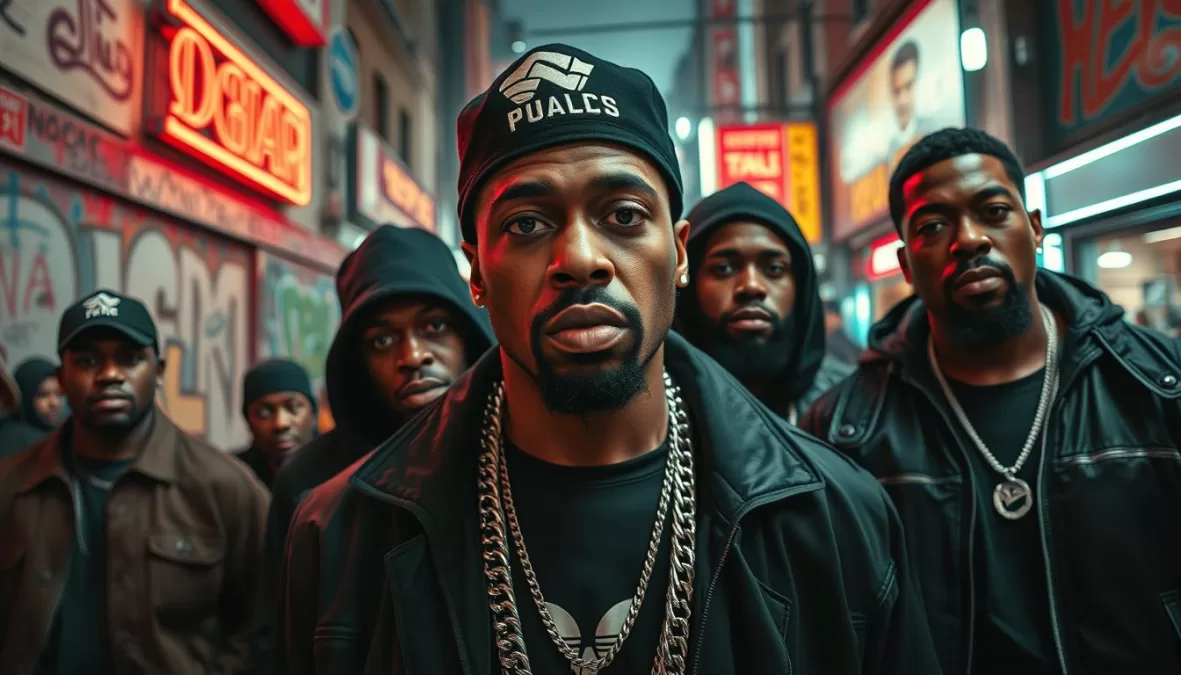
Cultural Impact and Influence
Cultural impact is another critical criterion, as it reflects a rapper’s influence on society and the hip-hop genre itself. Rappers like Snoop Dogg, who was introduced to the world by Dr. Dre, have had a lasting impact on the culture. Snoop Dogg’s debut album Doggystyle is a prime example of an album that not only achieved commercial success but also left a significant cultural mark.
The cultural influence of a rapper can be measured by their ability to inspire new artists, create new trends, and contribute to the broader cultural dialogue. Artists who have successfully introduced new regional sounds or helped launch the careers of other significant artists receive additional consideration for their broader creative influence.
Commercial Success and Longevity
Commercial success is a key indicator of a rapper’s appeal and endurance. The ability to produce albums that resonate with a wide audience, like Dr. Dre’s The Chronic, demonstrates a rapper’s skill in crafting music that is both critically acclaimed and commercially viable.
Longevity in the industry is also crucial, as it shows a rapper’s ability to adapt to changing musical landscapes while maintaining their relevance. Rappers who have managed to sustain successful careers over several decades are considered among the greatest.
Innovation and Artistic Vision
Innovation considers how an artist introduced new styles, techniques, or approaches that changed the direction of hip-hop. Visionary artists like Dr. Dre, who created entirely new sounds like G-funk, receive higher rankings for their transformative impact. The ability to push creative boundaries with concept albums like those that redefine the genre is a testament to a rapper’s artistic vision.
Artistic vision is demonstrated by the ability to create a distinctive artistic universe, complete with recurring themes, characters, and imagery. Rappers who have successfully done so are recognized for their innovative contributions to hip-hop.
Honorable Mentions: Legends Who Just Missed the Cut
The world of hip-hop is rich with talented artists, and among them are honorable mentions who narrowly missed our top 10 list. These legends have significantly contributed to the evolution and diversification of hip-hop, leaving an indelible mark on the genre.
East Coast Contenders
The East Coast has been a pivotal hub for hip-hop, nurturing some of the genre’s most influential figures. Among those who didn’t make it to the top 10 but are worth mentioning is DMX, known for his intense energy and raw lyrical prowess. His ability to convey emotional depth and tell stories through his songs resonated with a wide audience, making him a beloved figure in hip-hop.
Another notable figure is LL Cool J, a pioneer who helped bring hip-hop to the mainstream. With a career spanning decades, LL Cool J has demonstrated versatility and longevity, from his early days as a teenage rapper to his later work that incorporated elements of rock and R&B.
| Artist | Notable Album | Contribution |
|---|---|---|
| DMX | …And Then There Was X | Emotional Depth, Storytelling |
| LL Cool J | Mama Said Knock You Out | Pioneering, Versatility |
West Coast Icons
The West Coast has been instrumental in shaping hip-hop, particularly through the lens of gangsta rap. Ice-T, often referred to as the “Godfather of Gangsta Rap,” played a crucial role in putting the West Coast on the hip-hop map with his harrowing track “6 N the Mornin'” (1986). His subsequent albums, such as Rhyme Pays (1987) and Power (1988), were eloquent testimonies to the realities of life in Los Angeles, influencing a generation of West Coast MCs.

Other West Coast icons include Dr. Dre and Snoop Dogg, although Snoop Dogg made it to our top 10, Dr. Dre’s impact as a producer and rapper cannot be overstated. As a key figure in N.W.A, Dr. Dre helped define the sound of West Coast hip-hop, and his solo debut The Chronic is considered a landmark album in the genre.
Southern Pioneers
The Southern United States has become a significant force in hip-hop, thanks in part to pioneers like André3000 of OutKast. André3000 demonstrated unparalleled versatility, combining technical rapping skill with musical innovation that helped Southern hip-hop gain critical respect. Albums like ATLiens and Aquemini are recognized classics that showcased the duo’s ability to push the boundaries of hip-hop.
Groups like UGK and Geto Boys laid the groundwork for Southern rap to become a dominant force on the Billboard 200 charts in later decades. Their distinctive production styles, vocal approaches, and regional slang created entirely new subgenres that have become central to modern hip-hop.
These artists, among others, have challenged coastal dominance and expanded hip-hop’s sonic palette, becoming one with the fabric of the genre and paving the way for future generations of rappers.
10. Snoop Dogg
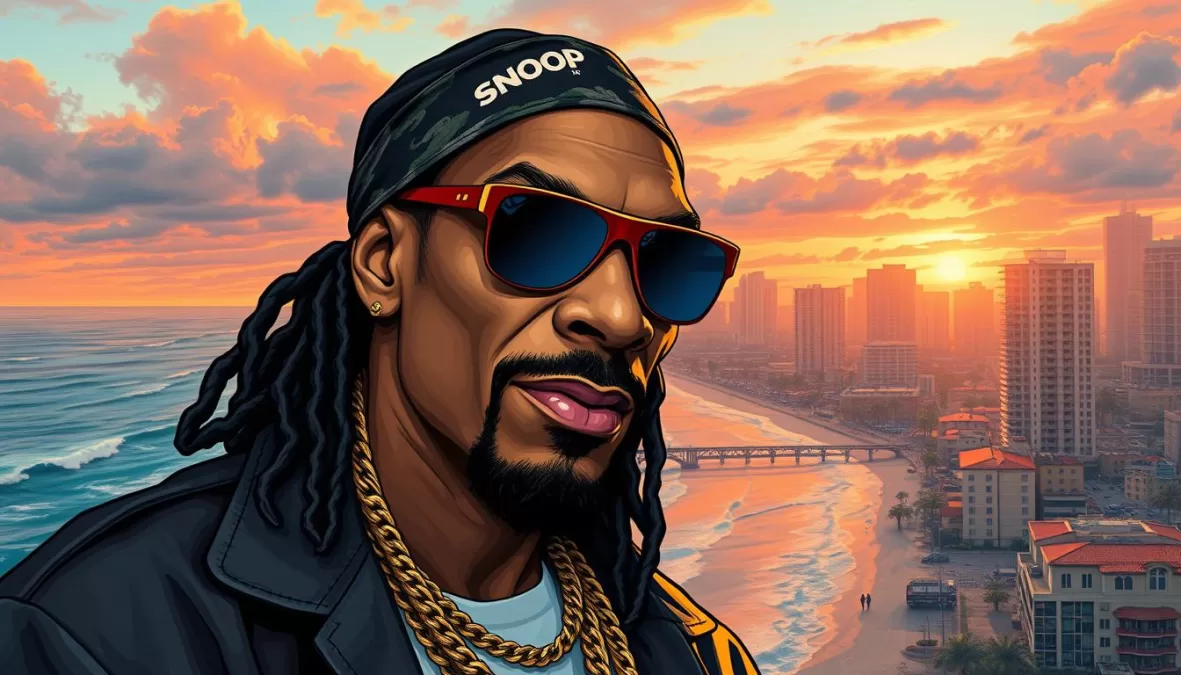
Snoop Dogg’s impact on hip-hop culture extends far beyond his music, making him a true icon of the genre. With a career spanning over three decades, Snoop has become synonymous with West Coast hip-hop and the G-Funk era.
From Long Beach to Global Stardom
Snoop Dogg’s journey to stardom began in Long Beach, California, where he was discovered by Dr. Dre. His debut on Dre’s “Deep Cover” in 1992 marked the beginning of a monumental collaboration. Snoop’s smooth flow and distinctive voice were showcased on Dre’s The Chronic, with hits like “Nuthin’ But a ‘G’ Thang” becoming instant classics. This collaboration not only defined the G-Funk era but also set the stage for Snoop’s solo career.
As Snoop Dogg’s popularity grew, so did his influence on the hip-hop scene. His unique style and charisma made him a household name, paving the way for his successful solo endeavors.
The G-Funk Era and Doggystyle
The release of Snoop’s debut album Doggystyle in 1993 was a game-changer. It shattered records by becoming the first debut album to enter the Billboard 200 at number one, selling over 800,000 copies in its first week. This achievement not only showcased Snoop’s commercial success but also solidified his position as a leading figure in gangsta rap.
Doggystyle remains one of the best-selling debut albums of all time, and its influence on the G-Funk era cannot be overstated. Snoop Dogg’s contribution to this genre, with his laid-back flow and catchy lyrics, helped define the sound of a generation.
Cultural Impact Beyond Music
Beyond his musical achievements, Snoop Dogg has transcended hip-hop to become a global cultural icon. His influence extends into film, television, business, and even cooking, as seen in his popular cooking show with Martha Stewart. Snoop’s transformation from a gangsta rap star to a beloved mainstream personality represents one of the most successful image evolutions in entertainment history.
Snoop’s distinctive slang, fashion sense, and laid-back persona have been widely imitated and referenced, becoming part of the broader cultural lexicon. His business ventures, ranging from cannabis products to wine, have demonstrated how rap artists can leverage their personal brands for commercial success beyond music.
9. Kendrick Lamar
Kendrick Lamar’s meteoric rise to Hip-Hop royalty is a testament to his innovative style and storytelling prowess.
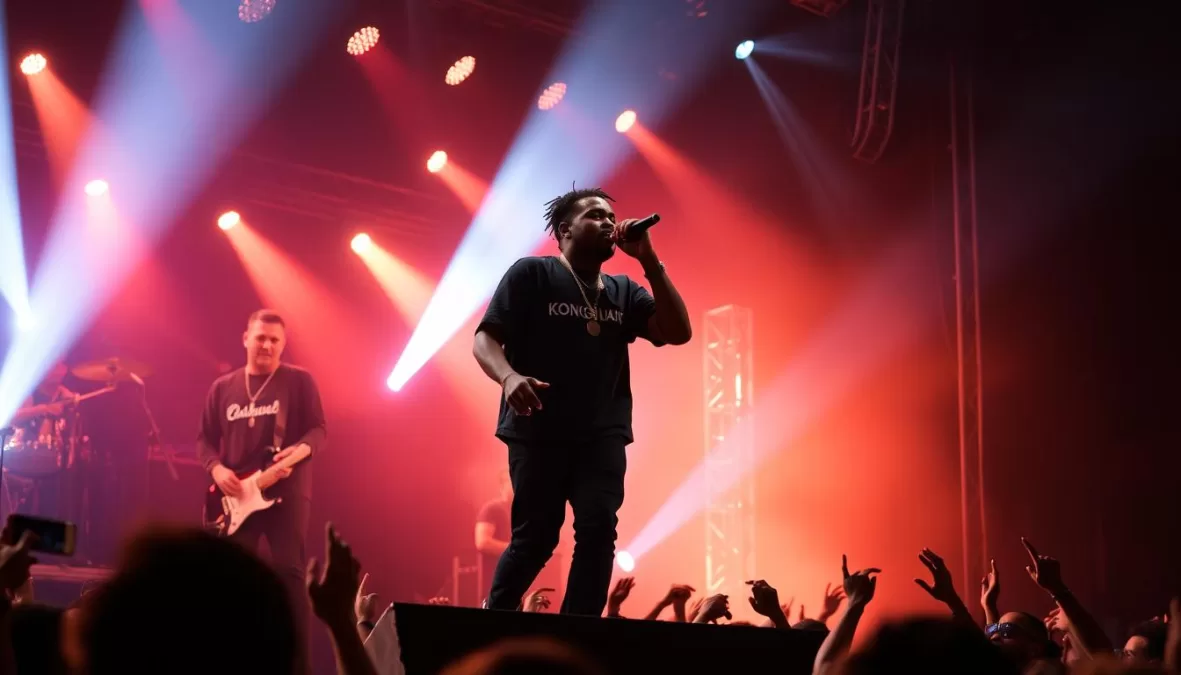
Compton’s Storyteller
Kendrick Lamar’s breakout album, good kid, m.A.A.d city (2012), introduced the world to his linguistic prowess and conceptual storytelling. This album is a vivid portrayal of life in Compton, where Kendrick grew up. The storytelling is so vivid that listeners can almost visualize the scenes he’s describing.
The album’s narrative is both personal and universal, touching on themes of youth, violence, and the struggle to escape the harsh realities of life in the inner city. Kendrick’s ability to weave complex stories into his lyrics has been widely praised, establishing him as a masterful storyteller in Hip-Hop.
Critical Acclaim and Pulitzer Prize
Kendrick Lamar’s subsequent albums continued to garner critical acclaim. To Pimp A Butterfly (2015) was a cultural landmark, transcending genre boundaries and sparking conversations about race, identity, and social justice. The album’s fusion of jazz, funk, and Hip-Hop created a unique sound that resonated with a broad audience.
In 2018, Kendrick Lamar made history by becoming the first non-classical or jazz musician to win the Pulitzer Prize for Music for his album DAMN. This achievement underscored his impact on the music industry and beyond, recognizing his contributions to contemporary music and culture.
Social Commentary and Artistic Evolution
Kendrick Lamar’s work is characterized by its fearless addressing of social issues such as systemic racism, police brutality, and mental health. Songs like “Alright” became anthems for the Black Lives Matter movement, demonstrating how his music resonates beyond entertainment to become a soundtrack for social change.
Throughout his career, Kendrick Lamar has shown remarkable growth and a willingness to experiment with different sounds, flows, and conceptual approaches. His commitment to social commentary and artistic growth has established him as not just a great rapper but an important cultural figure whose work will be studied for generations.
8. Lauryn Hill

Despite releasing only one solo album, Lauryn Hill has left an indelible mark on the music industry, shaping the sound of hip-hop for years to come. Her work, both with The Fugees and as a solo artist, has been cited as a primary inspiration by numerous artists, including Nicki Minaj and Kanye West.
The Fugees and Solo Breakthrough
Lauryn Hill’s rise to fame began with The Fugees, a group that blended hip-hop, soul, and reggae to create a unique sound. Their album “The Score” was a commercial success, featuring hits like “Killing Me Softly.” Hill’s innovative style and lyrical ability quickly made her a standout in the group.
Her transition to a solo career was marked by the release of “The Miseducation of Lauryn Hill,” an album that would go on to become one of the most critically acclaimed and influential hip-hop albums of all time. The album’s sophisticated rhyme schemes and thoughtful lyrics raised the bar for what was expected from emcees, particularly female rappers.
The Miseducation of Lauryn Hill’s Legacy
“The Miseducation of Lauryn Hill” is more than just a hip-hop album; it’s a masterpiece that seamlessly blends genres like neo-soul, reggae, and hip-hop. Songs like “Lost Ones” and “Final Hour” demonstrated that complex wordplay and meaningful content could coexist with commercial appeal.
The album’s impact was not limited to its sound; it also influenced the direction of hip-hop in the years that followed. Hill’s integration of different musical elements into a cohesive sound has become a blueprint for artists seeking to transcend genre limitations.
Influence on Future Generations
Lauryn Hill’s influence extends far beyond her own music. Artists from various genres have cited her as a primary inspiration for their work. Her innovative approach to music, lyrical depth, and genre-bending style have made her a role model for many. Kanye West, among others, has often referenced Hill’s influence on his own musical journey.
As a result, Hill’s legacy continues to be felt in contemporary hip-hop, with many artists striving to become one of the greats by following in her footsteps. Her solo album remains a touchstone for excellence in hip-hop, demonstrating the power of innovative production and lyrical genius.
7. Ice Cube

As a founding member of N.W.A, Ice Cube played a pivotal role in shaping the sound of gangsta rap and paving the way for future generations. His lyrics with N.W.A were not just a reflection of the harsh realities of life in Compton but also a call to action, challenging the status quo and pushing boundaries.
From N.W.A to Solo Success
Ice Cube’s career with N.W.A was marked by controversy and commercial success. Their album “Straight Outta Compton” was a game-changer, introducing the world to the harsh realities of gang life and police brutality. After leaving N.W.A, Ice Cube embarked on a solo career, releasing his debut album “AmeriKKKa’s Most Wanted,” which was a critical and commercial success.
His solo career allowed him to explore different themes and styles, from the socially conscious “The Predator” to the more personal “Lethal Injection.” Ice Cube’s ability to adapt and evolve while maintaining his core message was key to his enduring success.
Political Voice and Gangsta Rap Pioneer
Ice Cube was not just a pioneer of gangsta rap; he was also a powerful political voice. His lyrics often addressed social issues, from racism and police brutality to the struggles of growing up in the inner city. Songs like “F tha Police” and “Black Korea” became anthems for a generation, reflecting the frustrations and anger of young black Americans.
As a gangsta rap pioneer, Ice Cube’s influence can be seen in many later artists. His raw, unapologetic style paved the way for others to tell their stories, making him a crucial figure in the evolution of hip-hop.
Versatility in Entertainment
Beyond his rap career, Ice Cube has demonstrated remarkable versatility by successfully transitioning into acting, writing, producing, and directing. His work in films like “Boyz n the Hood,” “Friday,” and “Barbershop” established him as a legitimate actor and filmmaker, extending his cultural influence beyond music.
Even as his entertainment career diversified, Ice Cube continued to release albums that regularly charted on the Billboard 200, maintaining his musical relevance across decades. His ability to appeal to multiple audiences—from hardcore rap fans to mainstream movie viewers—demonstrated a rare versatility that few artists have achieved.
6. Eminem

Eminem, known for his complex rhyme schemes and provocative lyrics, has been a dominant force in hip-hop for decades. As a white rapper in a predominantly Black genre, he faced both acclaim and criticism, yet managed to become one of the best-selling artists of all time.
The Slim Shady Phenomenon
The emergence of Eminem’s alter ego, Slim Shady, marked a significant turning point in his career. This darker, more satirical persona allowed Eminem to explore themes of violence, drug use, and social controversy, captivating audiences worldwide.
Slim Shady’s impact was not limited to the music; it extended to the cultural landscape, influencing a generation of rappers and music fans alike. The character’s controversial nature sparked debates about artistic freedom and the boundaries of lyrical content.
Technical Mastery and Wordplay
Eminem is renowned for his technical mastery of rap, including intricate rhyme schemes, rapid-fire delivery, and complex wordplay. His ability to convey complex emotions and stories through his lyrics has earned him critical acclaim and a devoted fan base.
Tracks like “Lose Yourself” and “Stan” showcase Eminem’s storytelling ability and his capacity to craft songs that are both commercially successful and artistically significant. His collaborations with other artists, such as Kanye West, have also resulted in some of the most memorable moments in hip-hop.
Breaking Barriers in Hip-Hop
As one of the few white rappers to achieve widespread success, Eminem broke significant racial barriers in hip-hop. His commercial success, with numerous Billboard Hot 100 hits, demonstrated the genre’s broad appeal and paved the way for other artists to cross over into mainstream music.
Eminem’s influence extends beyond his own music; he has played a crucial role in shaping the sound of contemporary hip-hop. His ability to evolve artistically while maintaining a strong commercial presence has made him a model for success in the music industry.
Throughout his career, Eminem has demonstrated an ability to adapt and evolve, exploring different styles and themes while remaining relevant to new generations of music fans. His impact on hip-hop is undeniable, and his legacy continues to influence artists today.
5. Rakim
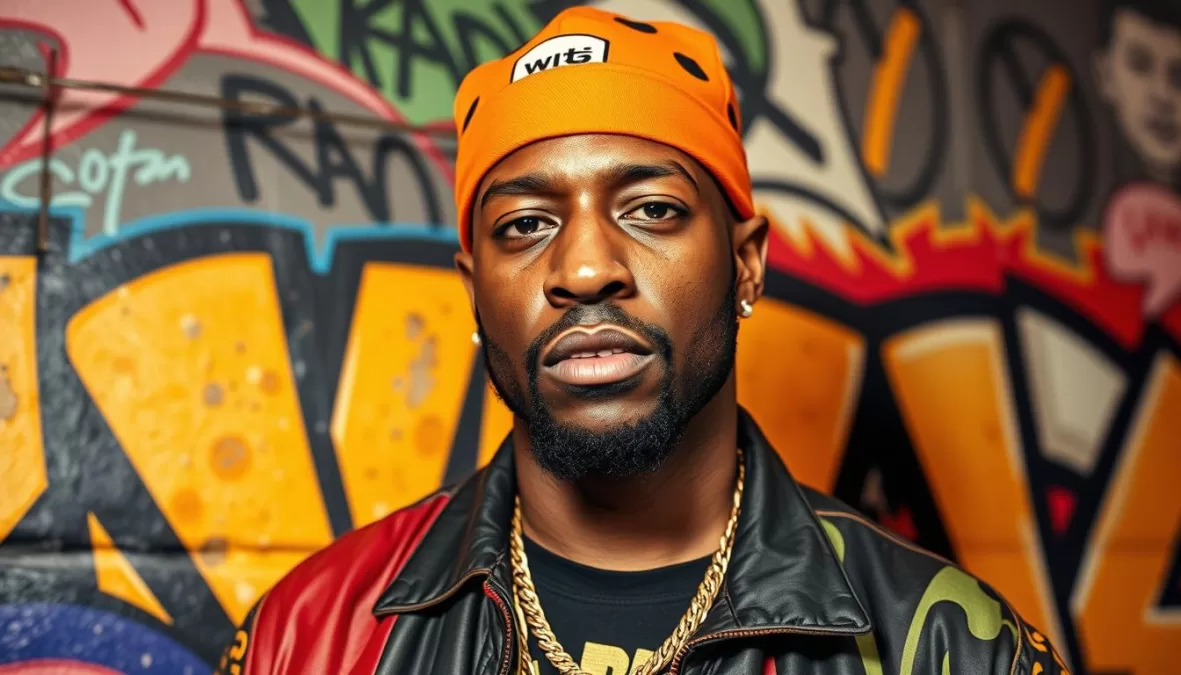
As one of the most influential figures in hip-hop history, Rakim’s legacy continues to inspire new generations of artists. With his innovative flow and lyrical complexity, he has left an indelible mark on the genre.
Revolutionizing Flow and Delivery
Rakim’s impact on hip-hop is multifaceted, but perhaps his most significant contribution is his revolutionary flow and delivery. Alongside DJ Eric B, Rakim pioneered a new style of rapping that emphasized complex rhyme schemes and smooth, effortless delivery. Tracks like “Microphone Fiend” and “Know the Ledge” showcase his technical brilliance and have become benchmarks for aspiring rappers.
His influence extends to virtually every technically skilled rapper who followed him, from East Coast lyricists like Nas to Southern innovators like André3000. Rakim’s title as “The God MC” reflects the reverence with which other rappers regard his contributions to the art form and his status as the standard against which technical skill is often measured.
Paid in Full and Follow the Leader
The Eric B & Rakim duo released several albums that are still revered today, including “Paid in Full” and “Follow the Leader.” These albums not only showcased Rakim’s lyrical prowess but also pushed the boundaries of what was possible in hip-hop. “Paid in Full” is often cited as one of the greatest hip-hop albums of all time, with its innovative production and Rakim’s dense, lyrical delivery.
“Follow the Leader” continued this success, featuring tracks that further cemented Rakim’s status as a hip-hop legend. The album’s title track, “Follow the Leader,” is a prime example of Rakim’s ability to craft compelling, complex lyrics that resonate with listeners.
The God MC’s Lasting Influence
Even as hip-hop has evolved through multiple eras and styles, Rakim’s fundamental innovations in flow and rhyme structure remain central to how skilled rapping is understood and evaluated. His influence can be seen in a wide range of artists, from those who directly emulate his style to those who have been inspired by his innovative approach to lyricism.
Songs like “Microphone Fiend” and “Know the Ledge” continue to be studied by aspiring rappers for their technical brilliance and effortless delivery. Rakim’s legacy is a testament to the enduring power of his music and the significant impact he has had on the evolution of hip-hop.
4. Nas
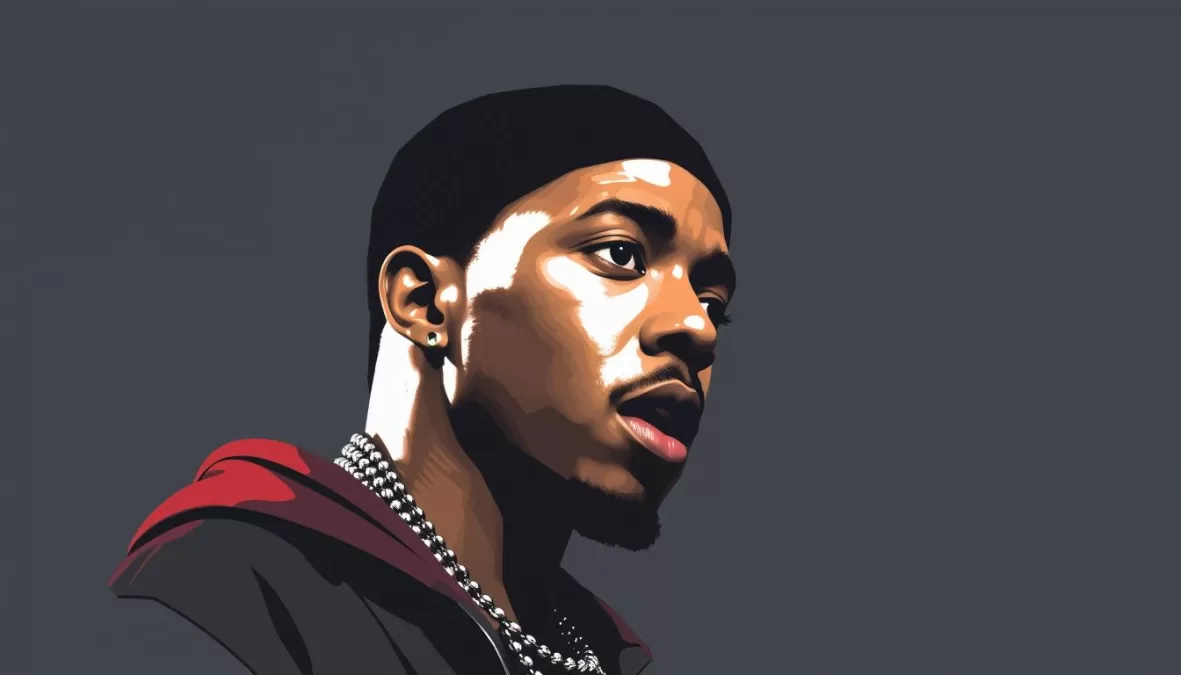
Nas’s debut album “Illmatic” is a masterpiece that has stood the test of time, showcasing his unique ability to weave intricate narratives. Throughout his career, Nas has demonstrated remarkable longevity and artistic evolution, maintaining his distinctive voice and perspective.
Illmatic: The Perfect Debut
“Illmatic,” released in 1994, is often cited as one of the greatest hip-hop albums of all time. Produced by legendary figures such as DJ Premier and Pete Rock, the album’s jazzy, soulful beats provided the perfect backdrop for Nas’s vivid storytelling. Tracks like “N.Y. State of Mind” and “It Ain’t Hard to Tell” showcased his ability to paint pictures with words, drawing listeners into his world.
The album’s impact was immediate, though it wasn’t until later that it achieved significant commercial success, eventually becoming a best rap album in the eyes of many critics and fans. “Illmatic” laid the groundwork for Nas’s solo career, establishing him as a major force in hip-hop.
Storytelling Prowess and Street Poetry
Nas’s lyrical ability is characterized by his storytelling prowess and mastery of street poetry. His vivid descriptions of life in Queens, New York, resonated with listeners worldwide, making him a voice for a generation. The poetic nature of his lyrics, combined with his complex rhyme schemes, set him apart from his contemporaries.
Tracks like “The World Is Yours” and “One Love” demonstrate his ability to blend street sensibility with poetic flair. This unique blend has influenced a wide range of artists, cementing Nas’s legacy as a hip-hop icon.
Evolution and Longevity
After “Illmatic,” Nas continued to evolve as an artist, experimenting with different sounds and approaches. Albums like “It Was Written” and “I Am…” achieved significant commercial success, reaching #1 on the Billboard 200. His willingness to collaborate with producers like Kanye West has kept his music fresh and relevant.
Later albums, such as “Life Is Good” and “King’s Disease,” which won the Grammy for Best Rap Album, demonstrate Nas’s continued relevance and artistic vitality. Throughout his career, Nas has navigated the challenges of longevity in hip-hop, adapting to changing trends while maintaining his core artistic identity.
3. Jay-Z
As the third best rapper of all time, Jay-Z’s impact extends far beyond his music, with a business empire that has redefined the genre.
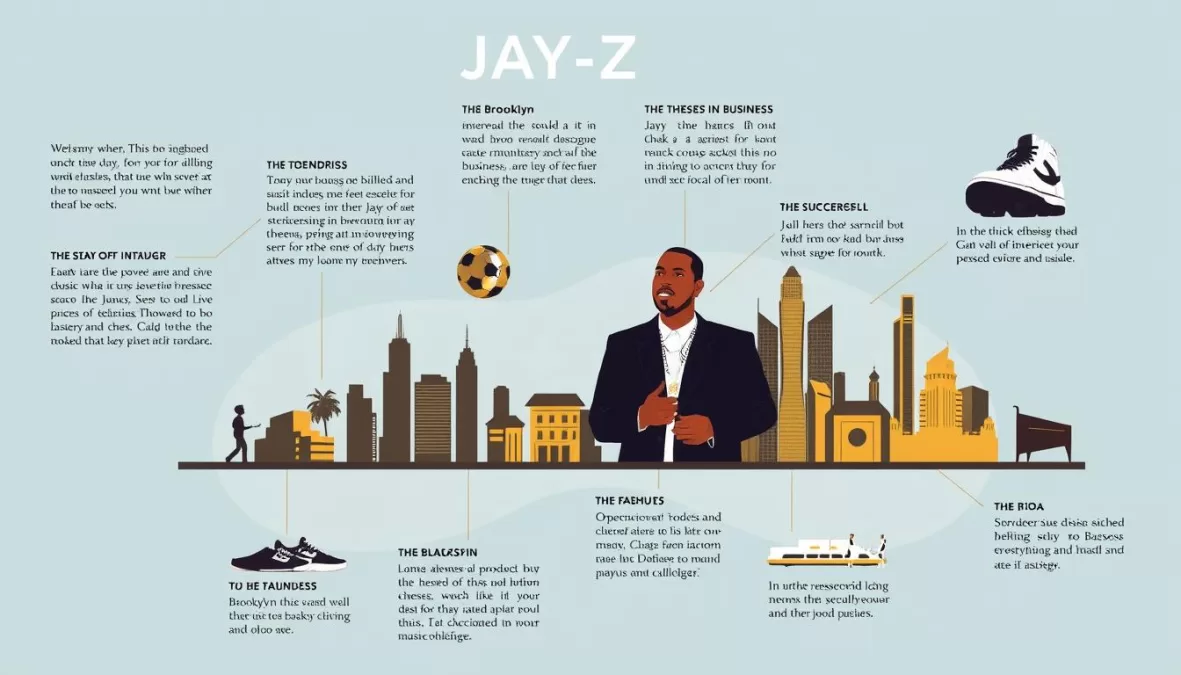
From Marcy Projects to Billionaire Status
Jay-Z’s journey to becoming a billionaire is a remarkable story of entrepreneurial spirit and strategic business decisions. Growing up in the Marcy Projects in Brooklyn, Jay-Z began his career in the music industry as a rapper, eventually co-founding Roc-A-Fella Records. His early success in music paved the way for various business ventures, including his clothing line, Rocawear, and his stake in the sports bar, 40/40 Club.
One of Jay-Z’s most significant business moves was his partnership with Puma, where he became a brand ambassador and helped design a line of sneakers. This collaboration not only showcased his influence in the fashion world but also demonstrated his ability to merge his artistic vision with commercial success. Additionally, Jay-Z’s acquisition of the streaming service Tidal in 2015 marked a significant foray into the music industry’s infrastructure, highlighting his commitment to artist rights and music distribution.
Jay-Z’s business empire has been fueled by his ability to diversify his investments and stay ahead of the curve in various industries. His stake in D’Ussé cognac and Armand de Brignac champagne has made him a significant figure in the spirits industry. Furthermore, his involvement in the entertainment industry extends to film and television production through Roc Nation, producing content that showcases his artistic vision and business acumen.
Lyrical Genius and Versatility
Despite his extensive business ventures, Jay-Z has maintained his reputation as a skilled rapper and lyricist. His ability to adapt to changing musical landscapes while remaining relevant is a testament to his versatility. Albums such as “The Blueprint” and “4:44” have received critical acclaim, showcasing his lyrical genius and capacity for storytelling.
Jay-Z’s collaborations with other artists, including Kanye West, have resulted in some of the most memorable tracks in hip-hop history. His appearance on Billboard Hot 100 charts multiple times underscores his commercial success and enduring influence in the music industry. Jay-Z’s lyrical prowess is characterized by his complex rhyme schemes, vivid storytelling, and ability to address social issues, making him one of the most respected rappers of his generation.
Business Acumen and Cultural Impact
Jay-Z’s business acumen extends beyond his individual ventures, as he has created a template for hip-hop artists to build empires beyond music. His influence on culture is evident in fashion, sports, politics, and social justice, making him one of the most influential cultural figures of his generation. By leveraging his musical career to build a business empire, Jay-Z has redefined what it means to be a successful rapper in the modern era.
Through Roc Nation, Jay-Z has expanded his reach into sports management, representing high-profile athletes and further cementing his status as a major player in the entertainment industry. His commitment to social justice and philanthropy has also made a significant impact, using his platform to address systemic inequalities and support emerging artists.
As a rapper, entrepreneur, and cultural icon, Jay-Z’s legacy continues to inspire a new generation of artists and entrepreneurs. His ability to balance artistic expression with commercial success has made him a role model for those looking to become one of the influential figures in their respective industries.
2. The Notorious B.I.G.
Emerging from the streets of Brooklyn, The Notorious B.I.G. quickly rose to fame, his powerful lyrics and smooth flow captivating listeners worldwide.
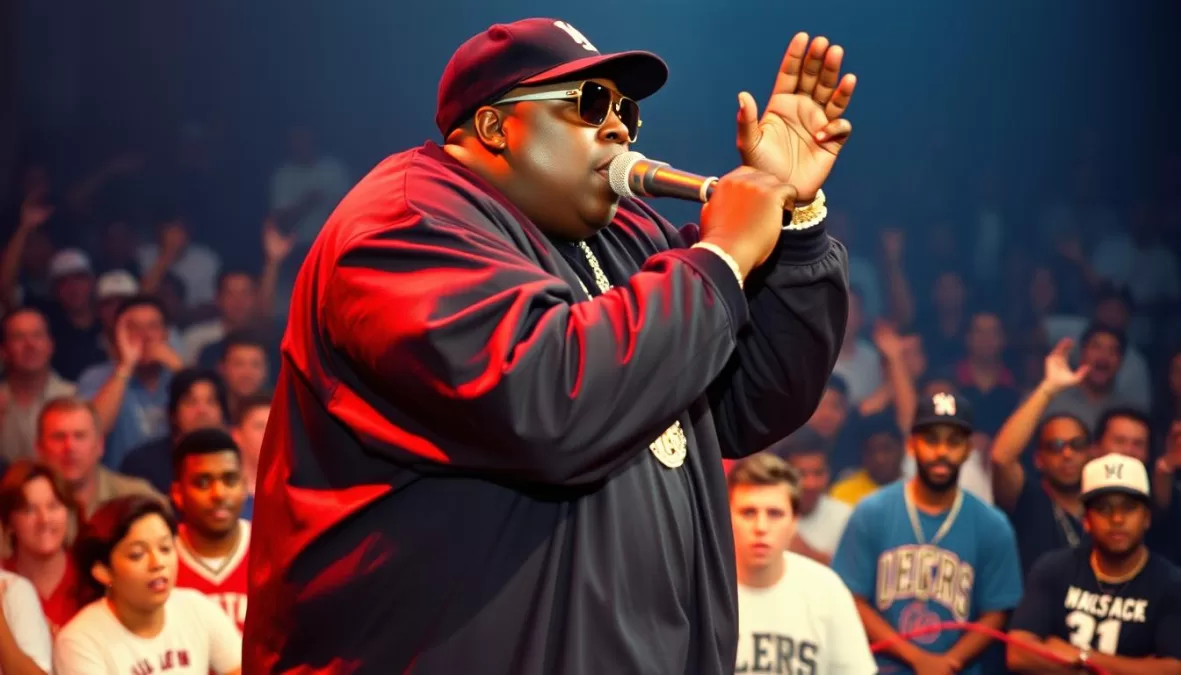
Brooklyn’s Finest
The Notorious B.I.G., born Christopher Wallace, was more than just a rapper; he was a storyteller who brought the streets of Brooklyn to life through his music. His debut album “Ready to Die” was a commercial success, showcasing his lyrical ability and vivid storytelling.
With his smooth flow and powerful lyrics, Biggie Smalls, as he was also known, quickly gained popularity. His music was not just about the harsh realities of street life; it was also about hope and the dreams of making it out alive.
Storytelling and Flow Mastery
One of The Notorious B.I.G.’s greatest strengths was his ability to tell stories through his songs. Tracks like “Juicy” and “Big Poppa” showcased his mastery of flow and his ability to craft narratives that were both personal and relatable.
His storytelling prowess was complemented by his smooth, laid-back flow, which made his complex lyrics accessible to a wide audience. This combination of lyrical depth and melodic flow helped establish Biggie as a leading figure in hip-hop.
Legacy Cut Short
Tragically, The Notorious B.I.G.’s life was cut short in March 1997, just weeks before the release of his second album, “Life After Death.” This album, released posthumously, debuted at #1 on the Billboard 200 and included two #1 singles on the Billboard Hot 100: “Hypnotize” and “Mo Money Mo Problems.”
Despite his short career, Biggie’s influence on hip-hop has been profound. His music continues to be celebrated for its honesty, complexity, and emotional depth. The question of what he might have achieved with a longer career remains one of hip-hop’s great “what ifs.”
1. Tupac Shakur
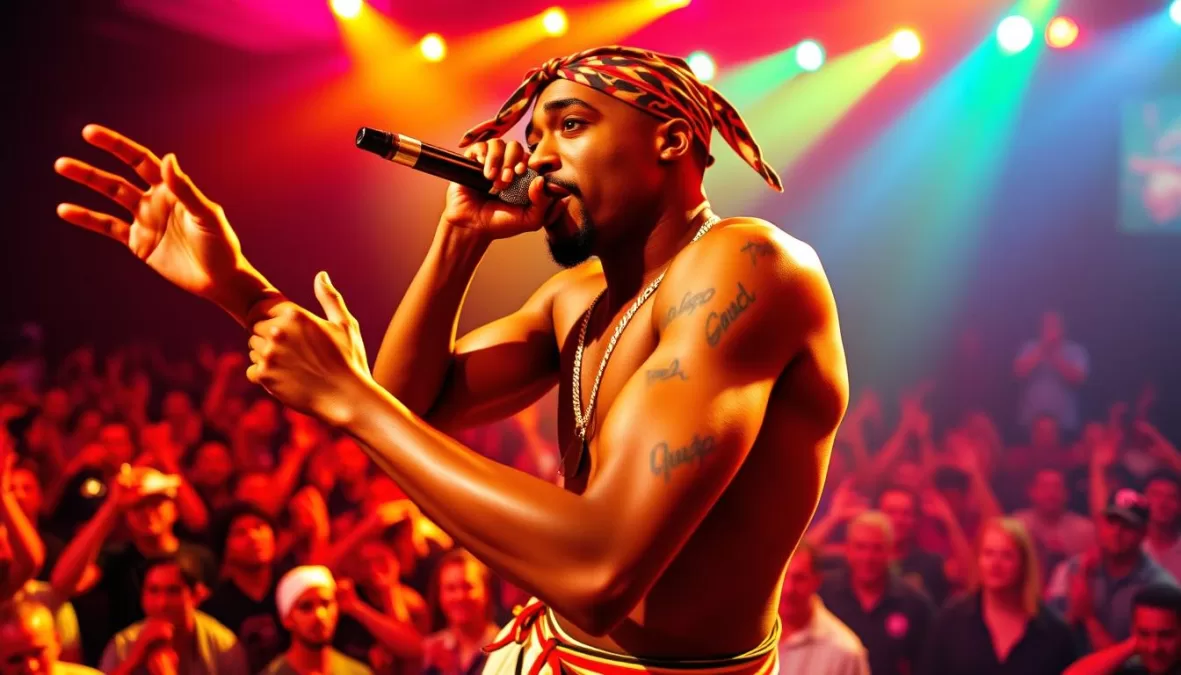
With a career spanning just a few years, Tupac Shakur managed to achieve a level of influence that few artists can match. His impact on hip-hop is still felt today, with many artists citing him as a major inspiration.
Poetic Revolutionary
Tupac Shakur was a poet at heart, and his lyrics reflected a deep understanding of the world around him. His ability to weave complex narratives and paint vivid pictures with words set him apart from his contemporaries. Songs like “Changes” and “Hit ‘Em Up” showcased his lyrical prowess and emotional depth.
His poetry was not just about storytelling; it was also a call to action. Tupac addressed social issues like police brutality, racism, and poverty, giving a voice to those who felt marginalized. This aspect of his music resonated deeply with his audience, making him a figure of hope and resistance.
Musical Versatility and Emotional Depth
Tupac’s music was incredibly versatile, ranging from the party anthems like “California Love” and “How Do U Want It,” which topped the Billboard Hot 100, to more introspective tracks like “Dear Mama” and “So Many Tears.” This versatility helped him connect with a wide audience, from those who enjoyed the energetic beats to those who appreciated his more personal and emotional songs.
His album “All Eyez On Me” was a commercial peak, debuting at #1 on the Billboard 200 and achieving significant commercial success. The album’s success was a testament to Tupac’s broad appeal and his ability to produce music that was both critically acclaimed and commercially viable.
Cultural Icon and Enduring Legacy
The mythology surrounding Tupac Shakur has only grown since his untimely death in 1996. His feud with The Notorious B.I.G. and the conspiracy theories about his death have cemented his status as a cultural icon. Decades later, artists like Kendrick Lamar and André3000 still reference Tupac as a major influence, demonstrating his enduring legacy.
Tupac’s influence extends far beyond music into film, fashion, literature, and political discourse. He remains one of the rappers of all time, with a legacy that continues to inspire new generations of artists and fans alike.
The Impact of the Top 10 Best Rappers on Modern Music
The top 10 best rappers have significantly influenced modern music, transforming hip-hop into a global phenomenon. Their impact is evident in various aspects of the music industry, from the evolution of hip-hop itself to its influence on other genres and its global reach.
Influence on Current Hip-Hop Artists
The top 10 rappers have set a high standard for current hip-hop artists. Their lyrical prowess, innovative production, and cultural impact have inspired a new generation of musicians. For instance, artists like Kendrick Lamar and J. Cole have cited the top 10 rappers as influences, reflecting their impact on contemporary hip-hop.
The business models developed by successful rappers like Jay-Z have become templates for artists seeking to translate their musical success into broader cultural and economic influence. This has enabled many artists to achieve commercial success beyond their music, venturing into entrepreneurship and entertainment.
- Innovative lyrical styles and storytelling techniques
- Experimentation with new production styles
- Cultural relevance and social commentary
Cross-Genre Impact
The influence of the top 10 rappers extends beyond hip-hop, affecting other genres such as R&B, pop, and rock. Their collaborations with artists from different genres have led to the creation of new sounds and styles, further expanding hip-hop’s cultural footprint.
For example, the gangsta rap pioneered by West Coast artists like Ice Cube and Tupac Shakur has influenced not only hip-hop but also other genres, with its narratives and styles being adapted in various musical contexts.
| Genre | Influence | Notable Artists |
|---|---|---|
| Hip-Hop | Lyrical innovation, storytelling | Kendrick Lamar, J. Cole |
| R&B/Pop | Collaborations, new sounds | The Weeknd, Drake |
| Rock | Energy, social commentary | Travis Barker, Machine Gun Kelly |
Global Reach and Cultural Significance
Hip-hop, originating from New York, has become one of the most influential global music genres. The top 10 rappers have played a crucial role in this international expansion, introducing hip-hop to diverse audiences worldwide.
Artists like Eminem and Snoop Dogg have achieved unprecedented commercial success internationally, making hip-hop a staple in global music culture. The West Coast hip-hop scene, in particular, has had a lasting impact on global hip-hop, with its styles and narratives being adapted locally.
The cultural significance of hip-hop is evident in its ability to express the experiences and emotions of youth across different cultures. It has become a primary vehicle for self-expression and social commentary, reflecting its deep-rooted influence on modern music and culture.
Debates and Controversies in Rapper Rankings
Hip-hop’s rich history is filled with legendary figures, but determining the best rappers of all time is a contentious issue. The genre has evolved significantly over the decades, leading to various debates and controversies surrounding rapper rankings.
East Coast vs. West Coast Bias
One of the most enduring debates in hip-hop is the perceived bias between East Coast and West Coast artists. This rivalry, which peaked in the 1990s, has had a lasting impact on how rappers are ranked and perceived. Fans and critics often argue that their preferred coast is underrepresented in the top rankings.
The East Coast is often associated with lyrical complexity and a more traditional hip-hop sound, while the West Coast is known for its funk-infused beats and laid-back flow. This dichotomy has led to a longstanding debate about which coast produced the better rappers. For instance, some argue that the lyrical prowess of East Coast rappers like Nas and Jay-Z should place them above their West Coast counterparts like Tupac Shakur and Dr. Dre.
However, others counter that the West Coast brought a unique sound and style that revolutionized hip-hop. The influence of artists like Snoop Dogg and Ice Cube cannot be overstated, as they helped shape the sound of a generation. This debate highlights the subjective nature of ranking rappers, as personal preferences often sway opinions.
Commercial Success vs. Artistic Merit
Another controversy in rapper rankings is the balance between commercial success and artistic merit. Some argue that a rapper’s greatness should be measured by their impact on the genre, their lyrical ability, and their innovation, rather than just their record sales or chart performance.
Kendrick Lamar, for example, is often praised for his storytelling ability and socially conscious lyrics, which have significantly impacted the hip-hop landscape. On the other hand, artists like Kanye West have achieved immense commercial success and have been credited with pushing the boundaries of what hip-hop can be, both sonically and stylistically.
The question remains whether a rapper’s commercial success detracts from or adds to their artistic merit. As hip-hop continues to evolve, it becomes increasingly clear that both aspects are crucial in evaluating a rapper’s legacy. The challenge lies in striking a balance between the two when ranking the greatest of all time.
Generational Divides in Hip-Hop Appreciation
Generational differences significantly impact how fans perceive and rank rappers. Older fans often prioritize pioneers and Golden Age artists, while younger listeners may favor more contemporary figures. This divide is partly due to the changing musical landscape and the evolution of hip-hop over time.
Younger fans might not fully appreciate the innovations of earlier artists like Rakim or Melle Mel, whose techniques have become so ingrained in hip-hop that their originality is no longer apparent. Conversely, older generations might overlook newer artists who have become influential in their own right, such as André3000, who has continued to push the boundaries of hip-hop and creativity.
As hip-hop continues to grow and evolve, it’s essential to consider how different generations perceive and contribute to the genre. By acknowledging these generational divides, we can work towards a more inclusive understanding of what makes a rapper great, ultimately helping to bring together diverse perspectives to become one unified voice in appreciating hip-hop’s rich history and its future.
How the Greatest Rappers Transcended Music
The impact of the greatest rappers extends far beyond their music, shaping cultural narratives, influencing social movements, and pioneering business ventures. These artists have not only left a lasting legacy in the music industry but have also made significant contributions to various other domains.
Social and Political Influence
Many of the top rappers have used their platforms to address social and political issues, influencing public discourse and contributing to social movements. For instance, Kendrick Lamar’s music has been at the forefront of discussions on racial inequality and police brutality, inspiring a new generation of activists.
The Notorious B.I.G. and Tupac Shakur, despite their tragic and untimely deaths, continue to be icons of resistance and resilience, symbolizing the struggles and aspirations of their communities. Their music and legacies have inspired countless individuals to engage with social issues, from racial justice to economic empowerment.
Table: Social and Political Impact of Top Rappers
| Rapper | Notable Contribution | Impact |
|---|---|---|
| Kendrick Lamar | Addressing racial inequality | Influenced social movements |
| Tupac Shakur | Symbol of resistance | Inspired community empowerment |
| The Notorious B.I.G. | Storytelling on social issues | Raised awareness on urban struggles |
Business Ventures and Entrepreneurship
Rappers have also made significant strides in the business world, leveraging their fame and creativity to build successful ventures. Snoop Dogg, for example, has become a renowned entrepreneur, with interests in various industries, from music production to cannabis.
Ice Cube has successfully transitioned into film, producing movies that have garnered significant box office success. His entrepreneurial spirit has also led to ventures in television and other media, showcasing his versatility beyond music.
Commercial success in these ventures has not only enhanced their personal brands but has also contributed to the economic vitality of their communities.
Film, Fashion, and Beyond
The influence of top rappers extends into the realms of film, fashion, and digital media, creating a lasting impact on popular culture. Ice Cube’s film career, for instance, has seen him star in and produce numerous successful movies, cementing his status as a Hollywood figure.
The Notorious B.I.G.’s style and charisma have influenced fashion, with his legacy continuing to inspire designers and artists. The fashion world has seen a lasting impact from hip-hop’s greatest artists, with trends and styles emerging from the culture that continue to shape mainstream fashion.
The multimedia approach pioneered by these artists has created a template for modern celebrity, demonstrating that success in one domain can lead to opportunities in many others.
Conclusion: The Lasting Legacy of Hip-Hop’s Greatest Voices
The legacy of hip-hop’s greatest voices continues to shape the music industry and beyond. The top 10 best rappers of all time have not only left an indelible mark on the genre but have also transformed it into a global phenomenon. From the pioneering days of Melle Mel and Grandmaster Flash and the Furious Five to the modern era with innovators like Kendrick Lamar, these artists have continuously pushed the boundaries of what’s possible in rap music.
Technical Innovations and Artistic Expression
The technical innovations in flow and rhyme schemes pioneered by artists like Rakim and Eminem have elevated rap to a sophisticated art form. Albums like “Straight Outta Compton,” “Illmatic,” and “good kid, m.A.A.d city” stand as cultural documents capturing specific moments in American history through the lens of hip-hop. These works have not only showcased the artists’ lyrical prowess but have also provided a narrative of the social and cultural context of their times.
Commercial Success and Cultural Impact
The commercial success achieved by these artists, from Billboard 200 #1 albums to Billboard Hot 100 chart-toppers, has made hip-hop the economic engine of the music industry. Beyond their musical contributions, figures like Jay-Z, Dr. Dre, and Ice Cube have demonstrated how rap artists can become cultural entrepreneurs, influencing film, fashion, technology, and business.
Diverse Approaches and Collaborative Efforts
The diverse approaches represented in our list, from the conscious rap of Lauryn Hill to the gangsta narratives of Tupac, showcase the remarkable range of expression possible within hip-hop. Collaborative relationships between these artists have created networks of influence that strengthen hip-hop’s creative ecosystem. The partnership between Mos Def and Talib Kweli in Black Star, for example, highlights the power of collaboration in shaping the genre.
The Enduring Debate and Future Generations
The enduring debate about who deserves to be called the greatest rapper of all time reflects hip-hop’s vibrant culture of competition and its ongoing evolution as an art form. As hip-hop continues to evolve with new voices and approaches, the foundational contributions of these ten artists provide the shoulders upon which future generations will stand.
In conclusion, the top 10 best rappers of all time have collectively transformed hip-hop from a local New York phenomenon to a dominant global musical force. Their influence extends beyond music to culture, entrepreneurship, and social commentary, leaving a lasting legacy that continues to inspire and shape the industry.





